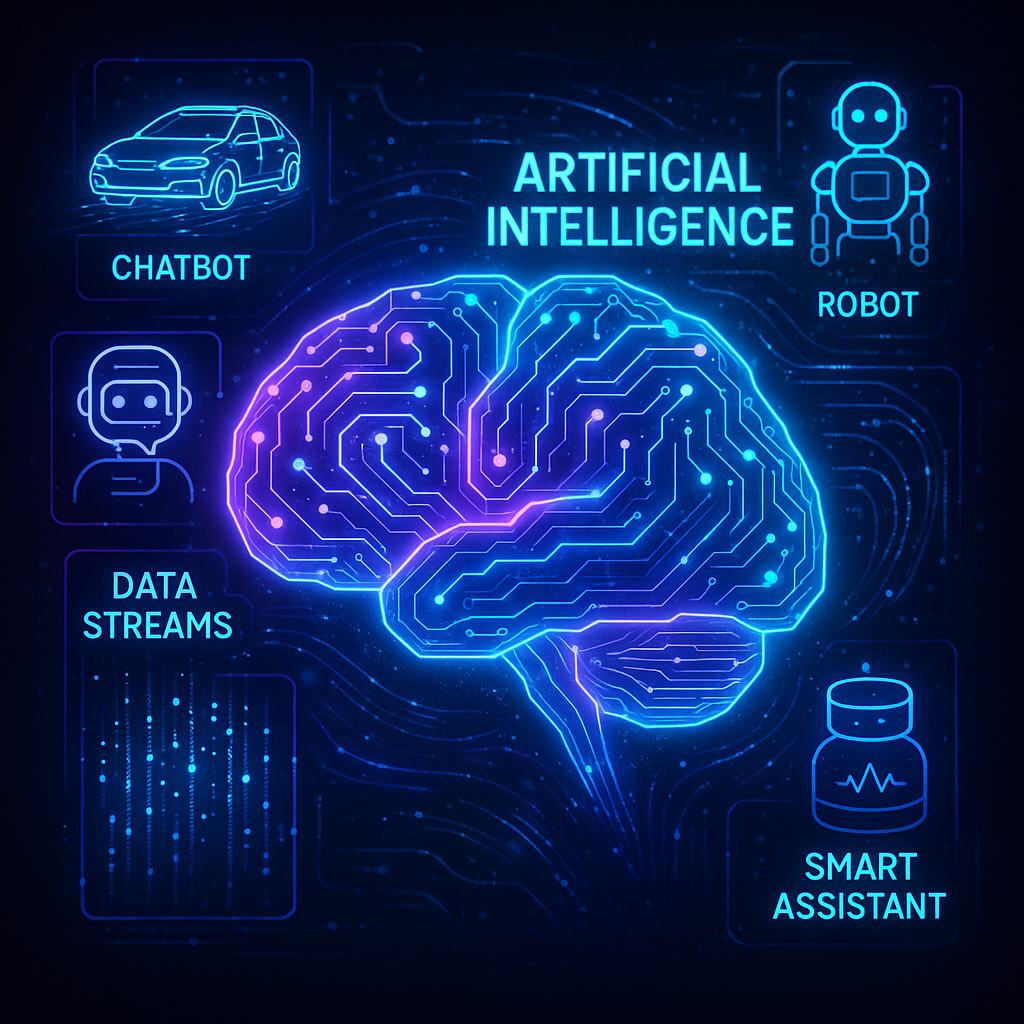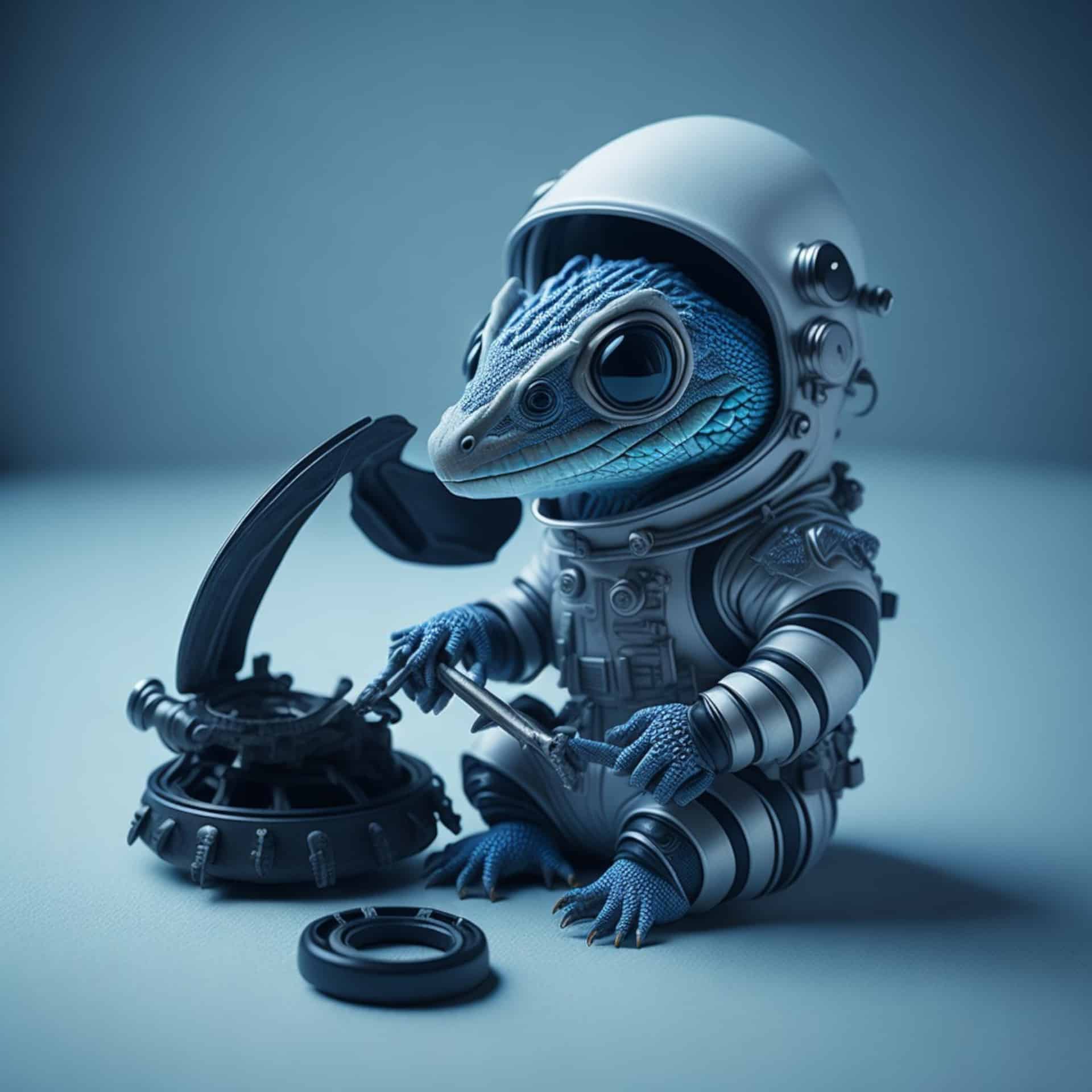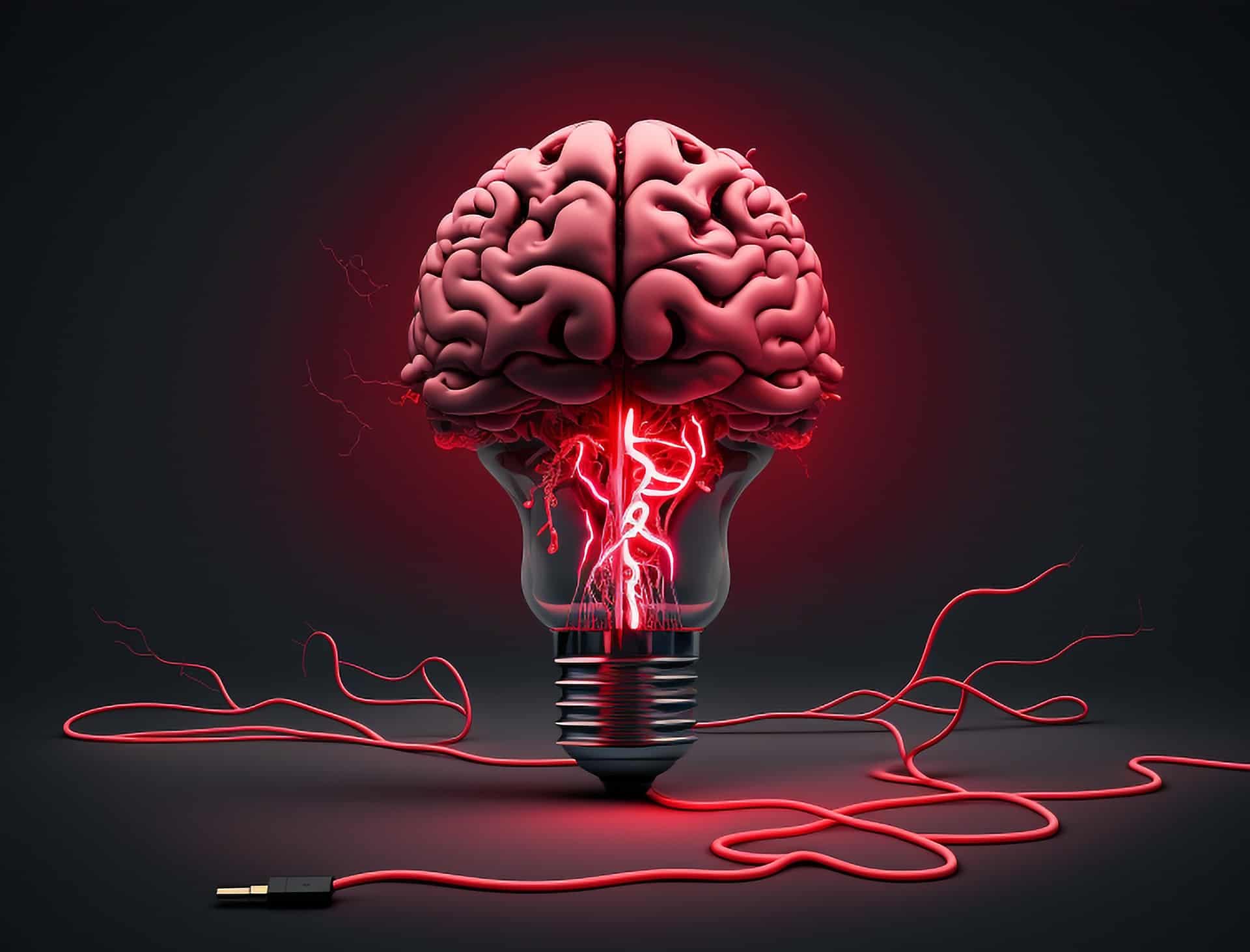Artificial Intelligence (AI) has become one of the most talked-about technologies of the 21st century. From virtual assistants to self-driving cars, AI is shaping industries, businesses, and even our daily lives. But what exactly is AI, how does it work, and why is it so important for the future? This article explores AI in detail, breaking it down into simple terms so anyone can understand its impact and potential.
Understanding the Basics of Artificial Intelligence
At its core, Artificial Intelligence refers to the ability of machines to perform tasks that typically require human intelligence. These tasks include learning, reasoning, problem-solving, understanding language, and even creativity. Instead of being explicitly programmed for every action, AI systems learn from data and improve over time.
AI can be as simple as a spam filter in your email or as advanced as a robot capable of navigating unfamiliar environments. The field is vast, covering different technologies and approaches designed to mimic human cognitive abilities.
The History of AI: From Idea to Reality
The concept of machines that can think is not new. Philosophers and scientists have been discussing it for centuries. However, modern AI research began in the 1950s. The term “Artificial Intelligence” was first coined by John McCarthy during the Dartmouth Conference in 1956, which is often considered the birthplace of AI as a field.
- 1950s–1970s: Early experiments focused on symbolic AI, where machines followed logical rules.
- 1980s–1990s: Machine learning emerged, allowing systems to learn from data.
- 2000s–2010s: Big data and powerful computing made deep learning possible, pushing AI into mainstream applications.
- Today: AI is present everywhere—from entertainment platforms like AITube, which creates AI-generated videos, to healthcare, finance, and education.
Types of Artificial Intelligence
AI can be categorized in several ways. The two most common classifications are based on capability and functionality.
AI by Capability
- Narrow AI (Weak AI): Designed for specific tasks, such as facial recognition or translation. Most AI today falls into this category.
- General AI (Strong AI): Hypothetical AI that can perform any intellectual task that a human can. It does not exist yet.
- Superintelligent AI: A future concept where AI surpasses human intelligence. While debated, it remains a subject of speculation and research.
AI by Functionality
- Reactive Machines: Basic systems that react to inputs but do not store memories (e.g., IBM’s Deep Blue chess computer).
- Limited Memory AI: Systems that learn from past experiences (e.g., self-driving cars).
- Theory of Mind AI: A work-in-progress type that understands emotions and social interactions.
- Self-Aware AI: The most advanced and hypothetical stage, where machines become conscious of themselves.
How Does AI Work?
AI systems function through a combination of data, algorithms, and computing power. Here’s a simplified process:
- Data Collection: AI relies on large volumes of data, such as images, videos, or text.
- Training Algorithms: Machine learning algorithms identify patterns and relationships within the data.
- Learning Models: Deep learning, inspired by the human brain, uses artificial neural networks to refine performance.
- Decision Making: Once trained, AI systems can make predictions, classifications, or recommendations.
For example, AITube uses AI models to analyze creative input and generate unique video content for creators. The system “learns” from existing video patterns and applies them to create something new.
Real-World Applications of AI
AI is no longer a futuristic concept—it’s here and thriving. Some of the most common applications include:
- Healthcare: Diagnosing diseases, predicting patient risks, and assisting in surgeries.
- Finance: Fraud detection, automated trading, and personalized banking services.
- Education: Personalized learning platforms and virtual tutors.
- Transportation: Self-driving vehicles and traffic management systems.
- Entertainment: Platforms like AITube use AI to generate videos, music, and creative content.
- Business: Chatbots, data analysis, and customer support automation.
These applications highlight how versatile AI can be when integrated into different industries.
Benefits of Artificial Intelligence
The rise of AI brings countless advantages to individuals, businesses, and society as a whole. Some major benefits include:
- Efficiency and Productivity: AI automates repetitive tasks, allowing humans to focus on complex work.
- Data-Driven Insights: AI analyzes massive datasets quickly, providing valuable information for decision-making.
- 24/7 Availability: Unlike humans, AI systems can operate without breaks or fatigue.
- Personalization: From e-commerce recommendations to personalized video content on AITube, AI enhances user experiences.
- Innovation: AI enables the creation of products and services that were previously unimaginable.
Challenges and Ethical Concerns of AI
While AI offers many opportunities, it also comes with challenges that must be addressed:
- Job Displacement: Automation may reduce the demand for certain jobs.
- Bias and Fairness: If AI is trained on biased data, it can produce unfair outcomes.
- Privacy Issues: Collecting and analyzing personal data raises security concerns.
- Dependence on Technology: Overreliance may reduce human creativity and decision-making.
- Ethical Use: Debates continue about how far AI should be allowed to go, especially in sensitive areas like warfare or surveillance.
Balancing innovation with responsibility is crucial for the sustainable growth of AI.
The Future of Artificial Intelligence
AI is still evolving, and its future looks promising. Experts predict that AI will continue to transform industries and daily life in the following ways:
- Human-AI Collaboration: Instead of replacing humans, AI will likely become a partner that enhances human creativity and productivity.
- Smarter Automation: Businesses will rely on AI for decision-making, customer engagement, and process optimization.
- Creative Industries: Platforms like AITube show how AI can reshape video production, allowing creators to produce high-quality content with minimal resources.
- Ethical Frameworks: Governments and organizations are working on regulations to ensure AI is developed responsibly.
- AI for Good: From climate change solutions to medical breakthroughs, AI could play a major role in addressing global challenges.
Conclusion
Artificial Intelligence is no longer a futuristic dream—it is a present reality that continues to evolve and influence every sector. From making our lives more convenient to transforming industries, AI is reshaping the world in ways we are only beginning to understand.
Whether it’s through intelligent healthcare systems, self-driving cars, or creative platforms like AITube, AI is unlocking new opportunities for innovation and growth. While challenges remain, the potential of AI is too significant to ignore. As we move forward, the key will be to use AI responsibly, ensuring it benefits humanity while minimizing risks.
FAQs About Artificial Intelligence
Is AI the same as machine learning?
No. Machine learning is a subset of AI. AI is the broader concept of machines being able to perform tasks that require intelligence, while machine learning focuses on algorithms that allow systems to learn from data.
Can AI replace humans completely?
AI can replace some repetitive tasks but not the creativity, empathy, and complex reasoning that humans bring. Instead, AI is more likely to work alongside humans.
Where can I see AI in action today?
From voice assistants like Siri and Alexa to creative platforms like AITube, AI is all around us in everyday applications.



